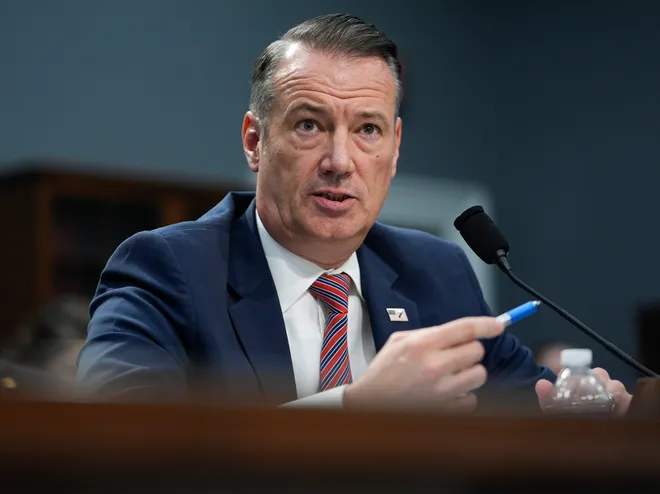Democratic Lawmakers Clash with ICE Over Funding, Oversight, and Detention Policies
WASHINGTON – Democratic lawmakers sharply criticized U.S. Immigration and Customs Enforcement (ICE) during a heated debate over the agency’s funding, transparency, and treatment of detainees—key issues tied to one of former President Donald Trump’s top second-term immigration priorities.
At a May 14 hearing, Rep. Lauren Underwood (D-Ill.), the top Democrat on the House Appropriations subcommittee for homeland security, accused ICE of overspending while failing to meet unrealistic deportation targets. Congress allocated funding for 41,500 detention beds, but ICE currently holds 52,000 detainees—a discrepancy that could deplete the agency’s budget within two months.
Underwood called ICE’s goal of removing 1 million migrants per year an “incredibly risky strategy that sets you up for failure,” adding, “This administration is cashing checks it does not have to reach questionable goals it cannot meet.”
ICE Acting Director Todd Lyons denied any impending funding shortfall, suggesting money could be reallocated from other agencies like FEMA or the Cybersecurity and Infrastructure Security Agency. He also revealed ICE’s long-term goal of securing 60,000 detention beds. “ICE will not run out of money,” Lyons insisted.

Lawmakers Demand Unrestricted Access to Detention Facilities
The hearing also highlighted tensions over congressional oversight. Underwood and Rep. Henry Cuellar (D-Texas) emphasized federal law allowing lawmakers to inspect ICE facilities without prior notice. “You cannot accept federal funding and shut the door on oversight,” Underwood said.
The issue gained urgency after a May 9 incident outside a privately run New Jersey detention center, Delaney Hall, where Newark Mayor Ras Baraka was arrested for trespassing during an unannounced visit by three Democratic House members: Reps. Bonnie Watson Coleman, LaMonica McIver, and Rob Menendez.
The clash underscores growing scrutiny of ICE’s operations as the agency faces criticism over detainee deaths, budget concerns, and resistance to transparency efforts.



